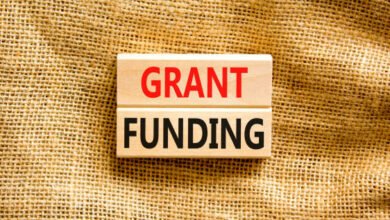Housing Renovation Grants 2024 – A Detailed Guide.

Discover valuable housing renovation grants designed to empower homeowners with financial support for revitalizing their spaces. Explore eligibility criteria, application processes, and how these grants can transform your home into the sanctuary you deserve. Start your renovation journey now.
Housing renovation grants are financial assistance programs provided by governments or other organizations to help homeowners cover the costs of renovating, repairing, or improving their homes. These grants can vary widely in terms of eligibility criteria, the types of renovations covered, and the amount of funding available. They are often aimed at specific demographics, such as low-income families, seniors, or individuals with disabilities, and may require applicants to meet certain income or property value requirements. Grants can help make homes more energy-efficient, accessible, or safe, contributing to overall community development and well-being.

Types of home improvement grants
The Home Investment Partnership Program
The Home Investment Partnerships Program (HOME), administered by HUD, offers grants to state and local governments. These funds are earmarked for creating affordable housing solutions for low-income families. Recipient governments then allocate the funds to individuals through grants, direct loans, loan guarantees, or similar financial aids. Eligibility hinges on meeting income limits specified by HUD.
The Section 504 Home Repair Program
The Section 504 Home Repair Program offers loans and grants to low-income and elderly homeowners for repairing or updating their single-family homes. Eligibility requires homeownership, residence in the home, inability to secure affordable funding elsewhere, and meeting income criteria. Grant eligibility starts at age 62.
The Native American Housing Improvement Program
The Native American Housing Improvement Program provides up to $60,000 for repairs or renovations to enhance properties and ensure they meet code standards. Eligibility entails membership in a federally recognized American Indian tribe or Alaska native group, residency in an approved tribal service area, income not exceeding 150 percent of the DHHS Poverty Guidelines, substandard current housing, and inability to secure housing assistance elsewhere.
The Area Agency on Aging
The Area Agency On Aging, managed by state governments, aids senior citizens in enhancing their properties for better livability. Funding availability and criteria differ by state and county.

SEE MPORE: Technical School Grants and Scholarships Guide 2024.
How to apply for home improvement grants
To access federal home improvement grants for homeowners, you can reach out to your local HUD office or visit its website for details on available grants in your area. Additionally, the National Residential Improvement Association (NRIA) offers assistance in locating free home repair grants. To determine eligibility for financial aid, you’ll need to complete a questionnaire through their platform.
Exploring locally available grants may uncover additional options. Grant application processes should be outlined in the information you find.
When applying for home improvement grants, be prepared to furnish various personal details and documentation. Many programs assess eligibility based on household income, so ensure you have documentation regarding your annual income readily available.
Documentation requirements vary among grant programs. For example, some renovation grants may necessitate proof of disabilities, while others require confirmation of membership in a recognized American Indian tribe. Certain programs may also require evidence of assets and employment.
Other Available forms of assistance for home improvements
If you can’t get home improvement grants but still need help paying for repairs, you have other options:
1. Low-cost loans:
Some groups like the USDA and HUD offer loans at affordable rates for homeowners with lower incomes. Remember, you have to pay back loans, unlike grants.
2. Tax credits:
You can use tax deductions for home improvements when you sell your home or if you work from home and fix up your home office. But usually, you can’t deduct them as personal expenses.
3. Cash-out refinance:
This lets you take out some of the money you’ve paid into your home and use it for other things, like improvements. Sometimes, the interest on these loans can be tax-deductible if used for big home improvements. Plus, the interest rates for these loans are often lower than other types. Just know that you’ll owe more on your mortgage and might have a longer time to pay it off.
4. Weatherization Assistance Programs:
These grants, run by the U.S. Department of Energy, help low-income families make their homes more energy-efficient. States and local governments give out the money. To apply, contact your state’s weatherization agency. You might qualify if your household income is at or below 200 percent of the poverty guidelines. Also, if you get Supplemental Security Income or Aid to Families with Dependent Children, you might be eligible too.

Conclusion on Housing Renovation Grants
Housing renovation grants offer valuable financial assistance to eligible homeowners looking to improve their properties. While specific eligibility criteria and available funds vary, these grants can provide vital support for repairs, renovations, and energy efficiency upgrades. For those who do not qualify for grants, alternative options such as low-cost loans, tax credits, cash-out refinancing, and weatherization assistance programs may still offer avenues to achieve home improvement goals. By exploring these opportunities, homeowners can enhance their living spaces, increase property value, and ensure a safe and comfortable environment for themselves and their families.
Frequently Asked Questions
1. What are Housing Renovation Grants?
Housing Renovation Grants are financial assistance programs provided by government agencies, nonprofits, or private organizations to homeowners or tenants to renovate, repair, or improve their homes. These grants aim to address issues related to housing quality, safety, accessibility, and energy efficiency.
2. Who is eligible for Housing Renovation Grants?
Eligibility criteria vary depending on the specific grant program. Typically, eligibility is based on factors such as income level, home ownership status, location, and the type of renovation needed. Some grants may target specific populations such as low-income families, seniors, veterans, or individuals with disabilities.
3. What types of renovations are covered by Housing Renovation Grants?
Renovations covered by Housing Renovation Grants may include repairs to structural elements, roofing, plumbing, electrical systems, heating and cooling systems, insulation, windows, doors, and accessibility modifications. Some grants may also support cosmetic upgrades or energy-efficient improvements.
4. How much funding can I receive through Housing Renovation Grants?
The amount of funding available varies depending on the grant program, the scope of the renovation project, and the applicant’s financial need. Grants may range from a few hundred dollars for minor repairs to tens of thousands of dollars for major renovations or home modifications.
5. Do I have to repay Housing Renovation Grants?
Housing Renovation Grants are typically provided as non-repayable funds, meaning they do not need to be paid back. However, some grant programs may have conditions or requirements attached, such as maintaining the property as your primary residence for a certain period of time or complying with specific renovation standards.
6. How can I apply for Housing Renovation Grants?
The application process for Housing Renovation Grants varies depending on the grant provider. In general, applicants may need to fill out an application form, provide documentation such as proof of income, home ownership, or renovation plans, and comply with any eligibility requirements specified by the grant program. Some grants may also require an inspection of the property before approval.
7. How long does it take to receive funding through Housing Renovation Grants?
The timeline for receiving funding varies depending on the grant program, the complexity of the renovation project, and the volume of applications being processed. In some cases, funds may be disbursed relatively quickly, while in others, the approval process may take several weeks or months.
8. Are there any restrictions on how I can use Housing Renovation Grants?
Housing Renovation Grants may have specific guidelines or restrictions on how the funds can be used. Typically, the funds must be used for approved renovation purposes outlined in the grant agreement. Using the funds for other purposes may result in penalties or repayment requirements.
9. Can I receive multiple Housing Renovation Grants for the same project?
It is possible to receive funding from multiple grant programs for the same renovation project, but applicants should be aware of any restrictions or requirements associated with each grant. Some grant programs may have limitations on stacking or combining funds from different sources.
10. Where can I find more information about Housing Renovation Grants?
Additional information about Housing Renovation Grants may be available through government agencies, housing authorities, nonprofit organizations, or community development organizations. Websites, informational materials, and local resources such as housing counselors or community centers can provide guidance on available grant programs and the application process.




